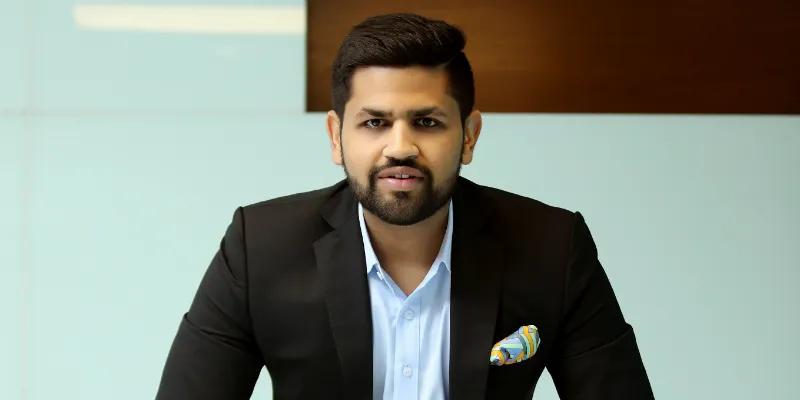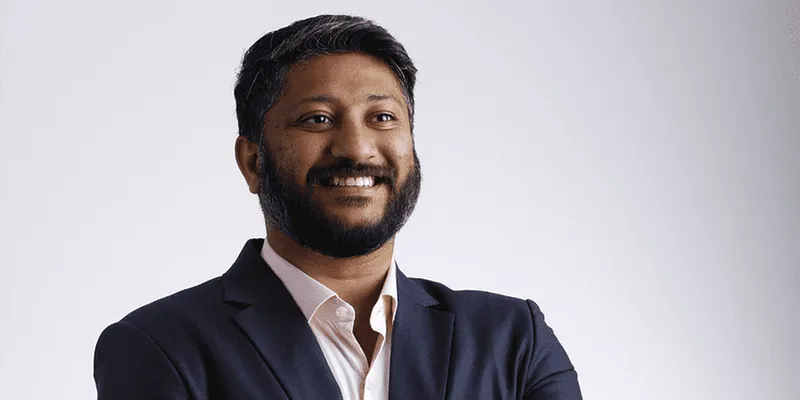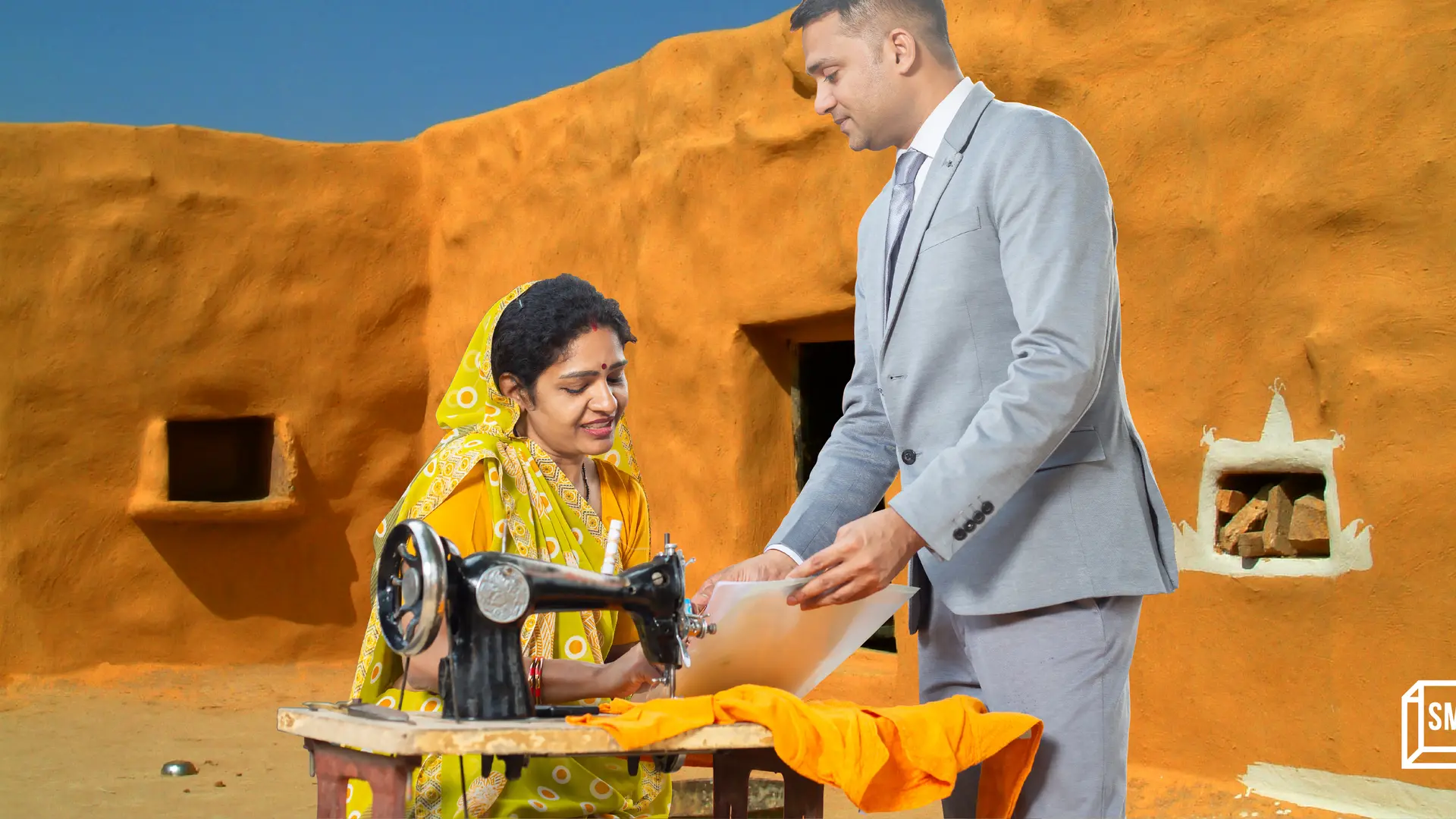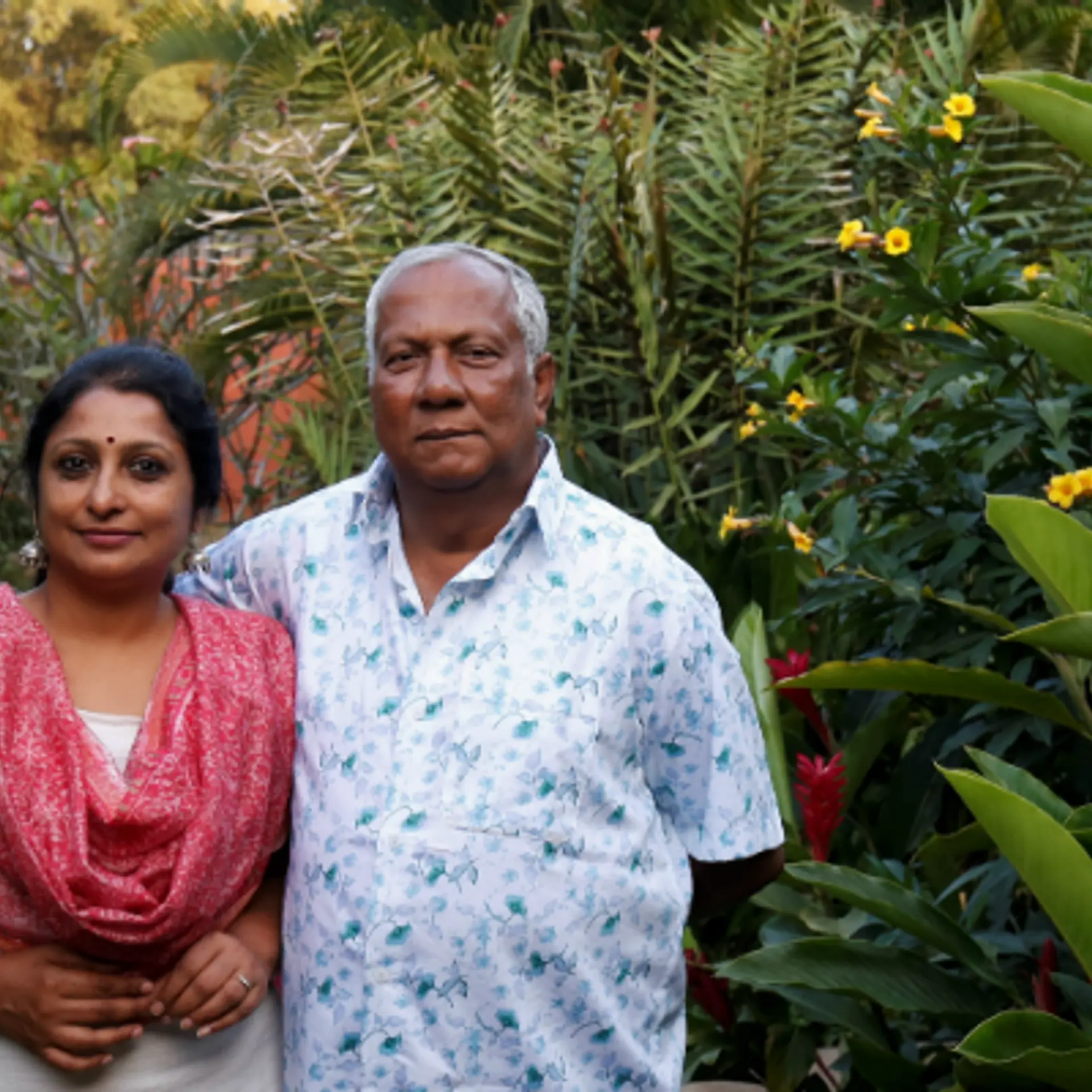Small cities, big opportunities: 5 small town businesses that are making noise across the country
On the occasion of Republic Day, SMBStory brings you stories of five large Made-in-India businesses and brands based out of small towns that are wooing customers across the country, and making the case for Atmanirbhar Bharat.
We have often heard of stories of entrepreneurs, who in a bid to pursue their dreams, move to big cities, work hard, toil day and night, and do everything it takes to taste success. But today, at SMBStory, we bring you the journeys of entrepreneurs who decided to stay rooted to their origins, and as they say, “bloom where planted”.
These businesses have pinned these small cities on the economic map and are not just building successful businesses but also giving tough competition to their urban peers.
Kalyan Jewellers

Ramesh Kalyanaraman (Left), TS Kalyanaraman (Centre), and Rajesh Kalyanaraman (Right)
TS Kalyanaraman, Founder of Kalyan Jewellers, has not only built a successful business empire but is also a high-flyer who has contributed immensely to the jewellery industry.
Coming from a background of textiles, Kalyanaraman (72) used to help his father in their decades-old textile business in Thrissur, Kerala. However, he soon realised that there was a lot more potential in the jewellery segment and that it needs to be organised.
In an interaction with SMBStory, his son, Ramesh Kalyanaraman, Executive Director, Kalyan Jewellers says,
“My grandfather and father were in the textile business. In Thrissur, there is a lane of jewellery shops where people come to shop for jewellery, and we had our textile retail shop adjacent to that lane. My father always thought of entering the jewellery industry and some of our regular customers encouraged him too. Thus, aspiration and influence, both led him to start Kalyan Jewellers.”
Kalyanaraman used his personal savings of Rs 25 lakh and took a bank loan of Rs 50 lakh to start Kalyan Jewellers in 1993.
“My father always dreamt of organising the jewellery segment. Earlier, there used to be small shops where jewellery was not stocked. People used to go by the booklet and trust the seller while buying expensive ornaments. My father wanted to bring in complete transparency into the business.”
To ensure transparency, the first thing Kalyanaraman thought of was putting all the stocks on the shelves for the customers to see. Therefore, he started with a large format store, spread across an area of 4,000 sqft, which turned out to be a big hit.
Ramesh says that at their store in Thrissur, customers from neighbouring cities like Palakkad in Mallapuram region of Kerala, and even from other states started visiting. For seven years, Kalyan Jewellers was operating from one store only, after which it opened another store in Palakkad, Kerala.
Kalyan Jewellers then expanded to Coimbatore in Tamil Nadu in 2003, and the rest, as they say, is history. Today, the company has grown into one of India’s largest and most trusted jewellery retailers with approximately 8,000 employees and over 140 showrooms across India and West Asia. Kalyan Jewellers launched their IPO in 2021.
Monte Carlo

Rishabh Oswal, Executive Director, Monte Carlo
If you live in North or East India, you probably own a Monte Carlo jacket, sweater, or cardigan. If not, you would have seen its outlets or winter wear products when you were out shopping. Its winter wear products are sold at thousands of stores in states such as Punjab, Uttar Pradesh, Bihar, Haryana, and more.
But did you know that Monte Carlo was India’s first organised fashion apparel brand?
Its legacy and ancestry, which traces back to post-Independent India, is not known to many.
Monte Carlo’s history in Ludhiana started with Oswal Woolen Mills, which was set up post-Independence in 1949. The mill started bringing the wool industry stakeholders together to form a more organised approach of manufacturing and selling. It eventually became one of the largest producers of woolen yarns in India.
In 1984, Monte Carlo was launched as a brand under Oswal Woolen Mills, and held the prestigious title of being one of the first organised fashion apparel brands in India.
“We were already in the business of woolen yarns and were also manufacturing products for various industries. It was then that we understood the need and demand for making the industry organised, and gave India its very first readymade apparel brand,” says Rishabh Oswal, Executive Director, Monte Carlo.
In 2002, several years after Monte Carlo was launched, it slowly became the all-season brand that we all know. “The launch was a significant step in the evolution of the branded garment industry in India. Since then, we have been catering to the ever-expanding demands of the clothing and fashion industry,” Rishabh adds.
Growing from strength to strength over the years, the business brought in Rishabh Oswal in 2015 to manage the brand. Currently just 27 years old, Rishabh is a third generation Oswal entrepreneur, and has launched his own sportswear brand named ‘Rock It’. Monte Carlo has also been clothing partner for the blockbuster Bollywood films Barfi, Mary Kom, Bhaag Milka Bhaag, and Student of the Year.
Hidesign

Dilip Kapur with Hidesign bags in the background
For a long time, Dilip Kapur thought international affairs was his calling. He moved from Pondicherry (now Puducherry) to the US to do a PhD in international affairs.
But life had other things in store for him. While doing a part-time job at a leather factory, Dilip fell in love with leather.
After completing his studies and returning to Puducherry, Dilip started making leather bags as a hobby. His time at the factory taught him all he needed to know about making leather bags. Dilip started sourcing leather from Chennai and started making hand-crafted leather bags in Auroville.
“The short stint at the leather factory made leather my lifelong passion. However, designing and making leather bags did not make me a businessman. I didn’t even know how to read a profit and loss statement at that point of time,” he tells SMBStory.
But he wasn’t about to let this dampen his entrepreneurial spirit. Dilip gathered Rs 25,000, hired one cobbler, and started a two-person artisan workshop named .
“Hidesign was born out of the need to be different from the uniform and synthetic flatness of leather bags in the mass market. It was almost like making strong my aversion towards painted leathers that didn’t look natural at all,” he says.
Dilip’s company now clocks Rs 170 crore gross annual revenue (as of FY 20) and has over 1,400 employees. It has evolved from a leather goods maker into a lifestyle brand with presence in exclusive stores, airport stores, shop-in-shops, multi-brand outlets, and ecommerce platforms. It claims presence in more than 102 exclusive brand outlets and 112 large format departmental stores.
Zed Black

Ankit Agrawal (left), Director and Partner, MDPH, and Anshul Agarwal (right), Partner, MDPH
Even seven years after Prakash Agrawal quit his sales assistant job at a textiles store in Indore, he couldn't find success as an entrepreneur. His attempts at manufacturing and selling soaps, detergents, and hair oils all proved to be unsuccessful.
Prakash’s mother didn’t want him to continue manufacturing and failing. The family had limited means, and she always wanted her son to pursue a stable job in the textile shop. But he was adamant and wanted to stick to entrepreneurship.
One fine day in 1992, Prakash’s mother told him that as he couldn’t succeed as a manufacturer, he should become a distributor for any established agarbatti (incense sticks) brand.
He took this as a challenge instead – wanting to prove his mother wrong by becoming a successful manufacturer. But even Prakash had to admit that agarbattis were a good idea. The Indian market for agarbattis was flourishing in the 90s on the back of a swelling demand.
Speaking to SMBStory, his son Ankit Agrawal said:
“My father did not have any capital. In 1992, he borrowed Rs 5 lakh from some relatives to start an agarbatti manufacturing business Mysore Deep Perfumery House (MDPH) and agarbatti brand Purab Paschim Uttar Dakshin.”
And so, Prakash and his brothers began making agarbattis out of a small garage in their Indore house. His mother joined to supervise the labour and production processes.
In those days, Bengaluru and Mysuru in Karnataka were the primary hubs of agarbatti manufacturing in India. When Prakash tried selling his Purab Paschim Uttar Dakshin agarbattis made in Indore, customers were not convinced of their quality. High-quality agarbattis were perceived to be exclusively from Karnataka, especially Bengaluru.
Despite this, Prakash forged ahead relentless. He began focussing on catering to local tastes and preferences through Purab Paschim Uttar Dakshin. It took him six years of persistent brand building to gain market share and make enough money to move production out of his house and into a factory.
The brand started doing well but Prakash wanted more – to experiment with a new brand with an English name and colourful packaging.
This led him to launch ‘Zed Black’ under parent in 2000. With this, Prakash wanted to make agarbattis with a wide range of pleasant aromas and long-lasting fragrances. But at the same time, he knew he had to ensure consistency and offer the products at value-for-money prices.
Today Zed Black has become one of the top three agarbatti brands in India, selling via more than 7.5 lakh retailers, 3,500 distributors, and exporting to around 30 countries, claims Ankit.
Duroflex

During his visit to Germany in the 1960s, the late PC Mathew studied the application of rubberised coir in car seats. Impressed by its high durability and cushioning properties, the engineer in industrial chemistry toyed with the idea of using rubberised coir to make mattresses.
Mathew ran a small mattress manufacturing business along a quiet canal at Alleppey, Kerala. The business, , was started by him with Rs 3 lakh initial investment in 1963.
While coir held promise, it would be new to the Indian market, and Mathew was not sure if it would be accepted. Taking a leap of faith, he began importing coir mattress manufacturing machines from Austria into his factory at Alleppey.
However, the 60s were a difficult time to be an entrepreneur. India was a developing country and access to technology and knowledge was limited. There were restrictions placed on importing machinery, and this posed a problem for Mathew.
“He decided to import a few of the bigger components of the machinery, and based on what he saw in Germany, he reengineered the machines locally. The machinery and components were brought in through cargo boats through the canals of Alleppey,” says Mathew George, a third generation entrepreneur who is now Director, Operations and New Product Development at Duroflex.
The Government of India came in clutch for the founder when it gave Duroflex a big order for hospital beds, battle tank seats, and railway coaches. This helped the Kerala mattress brand gain acceptance for its coir mattresses.
What began as a modest mattress factory along a canal is now a leading enterprise in the sleep products category. Today, the family business Duroflex is a Rs 500 crore revenue company headquartered in Bengaluru, and has over 500 employees. It owns three manufacturing facilities in South India.
Edited by Anju Narayanan







